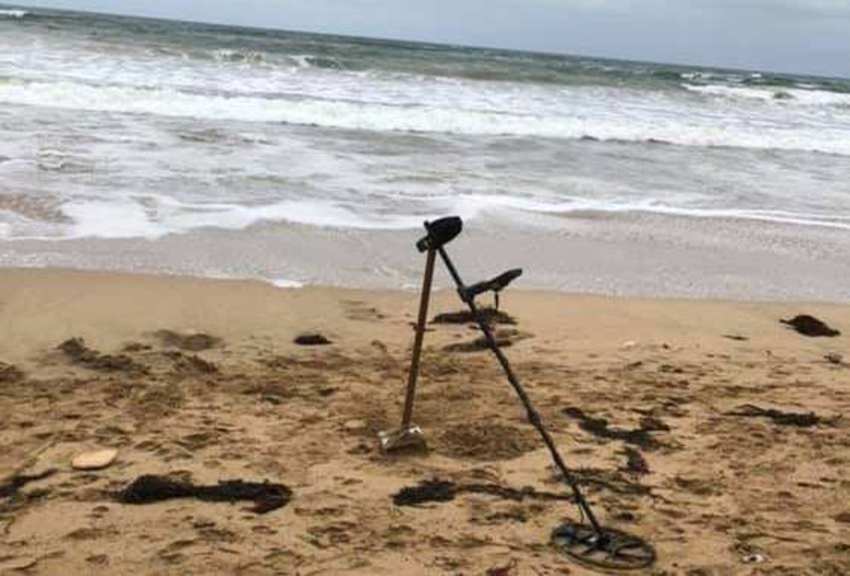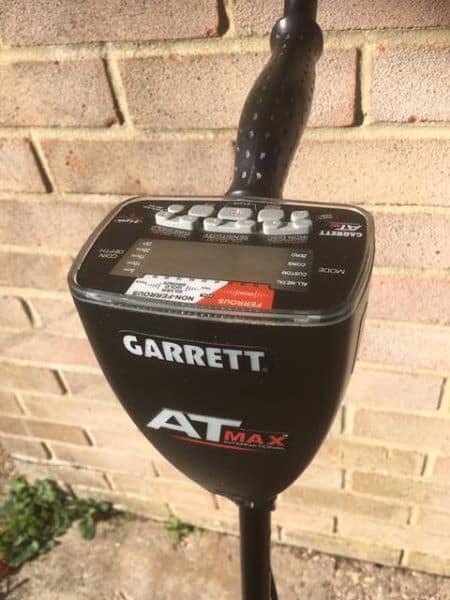
Connecticut, a lovely state known for its rich history, is also a very solid place for metal detecting lovers who are working hard for finding highly valuable targets!
Yet, it is extremely important to be clearly aware and to seriously respect the rules so you will always be in a safe territory from any unnecessary trouble with the local authorities…
… In this Post, I address these different points:
- The detection regulating in the state
- Places where you should go detecting in Connecticut?
- I recommend a decent detector for the state type of soil
- My thoughts on Gold Prospecting there
- Relevant clubs that you probably should think about joining
… As well as more helpful and sold info!
What are the metal detecting laws in Connecticut?
Connecticut has its own laws for this hobby! Indeed, all land under the jurisdiction of Department of Environmental Science permits metal detecting, without the need of any permit, as long as few conditions are met …
… No motorized devices are allowed, and all digging must be done by hand. The holes must be on surface only (except on beach areas) and must be filled up before the collector leaves!
In the case of beaches, a special permit is required. Even then, detecting is allowed only when the beach is closed to public visits, and the detection must be strictly restricted to the beach area. No harm to vegetation’s must occur no matter where the digging is taking place.
Personal artifacts like jewelry or other precious accessories found during the task must be returned to the authorities!
The collector must have a trash apron to store whatever is found during the digging. In case the collector doesn’t want to keep some of the products obtained during the excavation, he can submit it to the authorities.
However, littering these unwanted items on the grounds is a punishable offense. In Connecticut State Parks, any kind of detection activities is prohibited.
Where to go detecting in Connecticut?
There is really no shortage of places to explore in this state! The wildest treasures could be found in the most unlikely of places.
Experienced collectors have earmarked some sites that have a high probability of unearthing historical artifacts.
Many farms, which once belonged to slave owners, have a high chance of containing treasures from at least the Civil War era. Old parks and grounds behind old churches also have the same specialty…
…In fact, some might have treasures as old as the colonial era. Squantz Pond is a famous place for collectors who are looking for ancient treasures. St. Mary’s, a seaport near the Black Rock, also contain many stories of producing old jewelry and other treasures.
In general, certain places are always a hotspot for specific treasures. People looking for historical artifacts go after historical locations which have generally been untouched by urbanizations for centuries.
Areas that see high tourist activity, like seaports and beaches, have a high chance of containing jewelry and precious items within their surface. However, various grounds have different laws regarding metal detecting, and it is easy to forget about them. Hence it is always better to join a club which will keep the jurisdictions in mind during the adventure.
A Good Detector Recommendation for Connecticut Soil!

The soil of Connecticut is pretty mild and mellow, which is ideal for detection as this will allow your machine to operate even deeper!
However, the surface is covered with tiny rocks and pebbles, which can give false signals to the machine. Fortunately, the rocky surfaces are restricted to few locations only. In general, it is easy to ground balance the machine in most parts of Connecticut.
For such type of ground, one of the best models that you should be considering is the Garrett AT Max (Check it Right Here at Amazon!). It is an all-terrain machine that will allow you to find whatever you want …
…Not only is it suited for searching relics, jewelry, coins, and other artifacts, but it is also able of being submerged up to 10 feet of water … Thus, you could use it for underwater detection!
The Garrett AT Max also features a trustworthy all-metal mode and has a frequency of 13.6 kHz. This provides excellent power of detection over a wide variety of targets, including things you are most likely to search for such as coins, solver object and jewelry!
Finally, if this model is above your budget, you can still opt for this Cheaper Model Here at Amazon! It is a Fisher machine that I personally recommend for this who are pretty much on a budget.
Detecting in Connecticut Beaches!
Hunting treasures on the beach is very different from do it on regular grounds! In fact, the terrain is varied, so the requirements also differ drastically.
The beach often contains wet sands (apart from the general splashes of water). So, you would have to make sure that your machine is water-proof (Check these Waterproof Detectors for more ideas).
The sand on the beach also has a high content of iron deposits. This can often trick the machine into sending signals, especially if it is attuned to detect iron.
Then, understanding the motion of tides is also very crucial! During high tides, the water level rises, and thus a lot of entities move from primary seawater towards the beaches.
During low tide, the water level drops again, and the water recedes into the sea. However, many of the items brought on the beaches during high tide remain there. Thus, low tides are the best times to go hunting on the sea.
Even when you find something, you would soon realize that digging on the land is much different from drilling on the beach – especially on a dry beach. The sand tends to slip back into the hole unless you are fast enough. You would also have to look out for the waves to avoid getting your hard work ruined.
Searching for Gold in Connecticut …
The first step to take before hunting for gold is to find the right equipment. Different detectors specialize in different items; you would want to buy one that specializes in detecting gold (Check this Example Here at Amazon).
Another thing to note is the degree of mineralization. The soil in Connecticut is mellow, so mineralization is low. Hence you can go with a mid-to-low range gold detector without losing anything.
Next step is to find the locations. Since you can’t hope to cover entire Connecticut, it is wiser to visit sites that have earlier yielded gold. As we mentioned in the previous section, there are specific locations which have a higher chance of yielding gold artifacts.
On the beaches, the places where people trod the most have a high probability of producing some long-lost gold jewelry. Some other areas, like seaports and old tourist spots, also have a high chance of giving you golden success.
Specific tips will aid your search for gold in Connecticut. Earphones are an absolute must since signals for gold tend to be feeble and you might be unable to notice them generally. Also, try to join a club since they tend to know all the locations with a high probability of finding gold.
For more info about this part of the hobby, I highly encourage you to have a look at this Gold detecting and Prospection Post! You will certainly learn a ton of good info!
What other finds should you expect there?
Gold is not the only treasure you could find in Connecticut. The historic town is filled with historical artifacts, some dating back to the American Revolution.
Experienced hunters have found invaluable relics like George Washington’s presidential campaign button, a Connecticut copper from the times of King George, a pouch of silver coins and many others.
Of course, coins remain a prime artifact to be found, and there is an abundance of them. Coins dropped over centuries often turn up at the laps of lucky hunters. However, many other metal relics like clock pieces, watches, and monocles are also found. The antiquity of the items could range from last year to almost two centuries!
If you plan to look for only such historical relics instead of gold, you should make a choice beforehand. As mentioned earlier, detection devices often specialize in specific metals. If you plan to search for historical relics, look for detectors that specialize in iron and silver.
Are there detection clubs in there?
Connecticut boats of some excellent related clubs! The most famous of them is the Nor’Easters Metal Detecting Club.
The club holds meetings once every fortnight and organizes group detecting trips. Being the most popular club out there, they are very well-managed and know all the famous sites for the activity.
As stated earlier, there are some undeniable benefits of joining a club. They know all the right places, and they know the regulations and restrictions around each of these sites.
They have some experienced collectors with great stories. Not to mention, hunting in a group would undoubtedly make it all the more fun.
Detecting in Connecticut Parks!
As stated before, it is illegal to dig in national parks, including the ones in Connecticut. The list of parks in Connecticut where digging is illegal contains 15 names, including Dinosaur State Park and Stoddard Hill Boating Access. Hence, parks should be generally avoided while going on a detecting adventure.
However, if you really want to dig up treasures in a national park, it is perfectly fine to ask. Even though the law considers digging in national parks illegal, the final decision rests with the authorities in the park.
If there are regions in the park that are secluded and isolated from flora and fauna of the rest of the park, you might get the permit after all.
Getting your detecting permit in there …
Digging up in the vast area that comes under the jurisdiction of the Department of Environmental Sciences doesn’t need any permit, given that you follow the rules mentioned earlier.
On the beaches, a prior permission is required from the concerned authorities. You can mail them your request and expect a response within a week or two. It is better to explain your project and convince them that you know all the rules and promise to abide by them.
It would be a smart move to get all the permits you need well-before your intended journey. Also, don’t fail to mention your projected date of journey to all the concerned authorities.
Conclusion
I really hope that I’ve helped you, even a little bit, become more excited about trying your beloved device in this state! Be sure that when you search new places that you are not really used to, chances are pretty high that you will come up with even more valuable targets …
… I am sure that you will be able to do so in Connecticut as soon as you step foot there!
Finally, you can also learn where you can metal detect in West Virginia.
